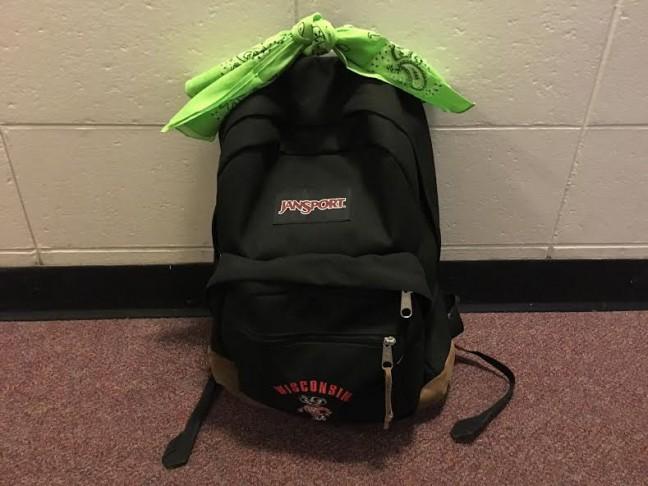University of Wisconsin mental health advocates gathered Monday to watch and discuss Elizabeth Swados’ documentary on her experience with depression, contributing to a greater dialogue on mental health awareness on campus.
The half-hour film, introduced by University Health Services Suicide Prevention coordinator Valerie Donovan, premiered on HBO last year. The screening coincides with Mental Health Awareness Month.
Swados tells the story of her depression in the form of a cartoon to illustrate the way the illness affected her life and those around her. She describes the feelings of helplessness and despair she felt as a young adult that persisted until a cloud of depression came over her, sending her cartoon likeness into a black hole.
A notable part of the film was the way it addressed suicide. Swados depicts her suicidal thoughts as a violent, swerving van she is being driven around in and cannot escape. After she manages to escape, the film shows her many quests for and eventual success at getting help.
Leaders of UW’s National Alliance on Mental Illness, a mental health awareness organization, led small group discussions after the screening. Student Lexi Kazen reflected on the way Swados depicted mental health.
“I think more people should see this documentary because depression isn’t one-size-fits-all,” Kazen said. “People should be able to see that there’s different symptoms for different people and it happens in your own personal way.”
UW NAMI is working with UWPD to train officers on dealing with mental health crises. UWPD has specially trained 24 officers who have elected to be involved in the program.
UW NAMI leader Philip Pape said the organization is trying to raise more awareness about mental health on campus with the Bandana Project, which launched several weeks ago. Students who consider themselves mental health allies tie a green bandana to their backpacks, identifying themselves as open to being approached for help with mental crises.
In two weeks, 200 people have joined the movement, and UW NAMI is hoping to have at least 2,000 students on board by next semester, Pape said.
UW NAMI plans on hosting more screenings and discussions like Monday’s next semester.













